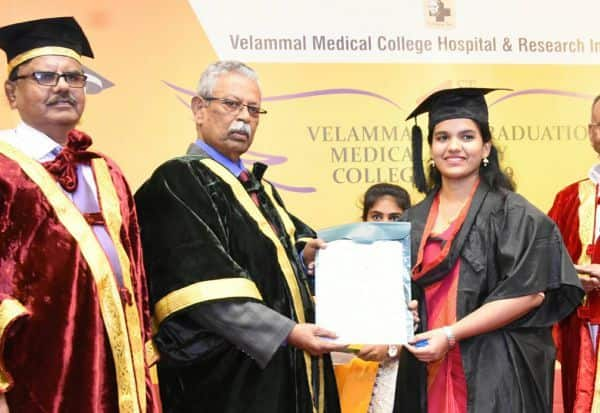Paracetamol: toe the line on proper dosage
CHENNAI, APRIL 02, 2019 00:00 IST
Excessive use is detrimental to children’s health, say doctors
When children have fever, the majority of parents invariably turn to a commonly used medication — paracetamol. While paediatricians consider paracetamol as a safe drug when given in the prescribed dose, any excess in dosage could be detrimental to the child’s health, even to the extent of causing damage to the liver, they add.
Recently, doctors at a private hospital received a child with serious damage to the liver. The child had fever and the parent administered paracetamol continuously for three days without checking the temperature. Three days later, the child was in a critical condition due to paracetamol toxicity, but went on to recover with treatment.
“Paracetamol is a safe drug when given in the correct dose. Any excess in dosage could cause acute liver cell failure. In such circumstances, children present with drowsiness, vomiting and extreme weakness. But paracetamol overdose may not always be symptomatic. Sometimes, symptoms may emerge two or three days later. So, it is important to make an early diagnosis to save children from acute hepatic failure,” said S. Balasubramanian, medical director of Kanchi Kamakoti CHILDS Trust Hospital.
He drew attention to U.K.’s NICE guidelines that say there is no need to treat fever unless it causes discomfort. “Most children may feel uncomfortable when the temperature is 101 or 102 degree Fahrenheit. Then, we need to relieve the discomfort,” he added.
Drops and syrups
P. Ramkumar, senior consultant paediatrician, Institute of Child Health and Government Hospital for Children, said there is basically confusion between paracetamol drops and syrup. “I frequently remind parents that there is a huge difference between the two. A dosage of paracetamol drops is five times more powerful than say, the same dosage of the syrup, but many are unaware of this,” he said.
Abdominal pain, irritability, generalised weakness, loss of appetite, jaundice, diarrhoea, nausea, vomiting, convulsions and coma are the symptoms of a paracetamol overdose. “Most of the bottles have the dose printed on them and parents should follow the instructions. It should be given once in six hours in the recommended dosage — not more than four times in 24 hours,” Dr. Ramkumar said.
T. Sivaraman, consultant, paediatric intensivist, pointed out that he does receive children with inadvertent overdose of paracetamol such as when it is given eight times instead of the prescribed four times.
A delay in seeking medical help will lead to liver failure requiring a transplant, he said, adding: “Children come to us with a history, dullness and vomiting. Parents might assume these are caused by the fever. We take their previous history into account and check for signs of toxicity. If we suspect paracetamol toxicity, the treatment is started immediately.”
CHENNAI, APRIL 02, 2019 00:00 IST
Excessive use is detrimental to children’s health, say doctors
When children have fever, the majority of parents invariably turn to a commonly used medication — paracetamol. While paediatricians consider paracetamol as a safe drug when given in the prescribed dose, any excess in dosage could be detrimental to the child’s health, even to the extent of causing damage to the liver, they add.
Recently, doctors at a private hospital received a child with serious damage to the liver. The child had fever and the parent administered paracetamol continuously for three days without checking the temperature. Three days later, the child was in a critical condition due to paracetamol toxicity, but went on to recover with treatment.
“Paracetamol is a safe drug when given in the correct dose. Any excess in dosage could cause acute liver cell failure. In such circumstances, children present with drowsiness, vomiting and extreme weakness. But paracetamol overdose may not always be symptomatic. Sometimes, symptoms may emerge two or three days later. So, it is important to make an early diagnosis to save children from acute hepatic failure,” said S. Balasubramanian, medical director of Kanchi Kamakoti CHILDS Trust Hospital.
He drew attention to U.K.’s NICE guidelines that say there is no need to treat fever unless it causes discomfort. “Most children may feel uncomfortable when the temperature is 101 or 102 degree Fahrenheit. Then, we need to relieve the discomfort,” he added.
Drops and syrups
P. Ramkumar, senior consultant paediatrician, Institute of Child Health and Government Hospital for Children, said there is basically confusion between paracetamol drops and syrup. “I frequently remind parents that there is a huge difference between the two. A dosage of paracetamol drops is five times more powerful than say, the same dosage of the syrup, but many are unaware of this,” he said.
Abdominal pain, irritability, generalised weakness, loss of appetite, jaundice, diarrhoea, nausea, vomiting, convulsions and coma are the symptoms of a paracetamol overdose. “Most of the bottles have the dose printed on them and parents should follow the instructions. It should be given once in six hours in the recommended dosage — not more than four times in 24 hours,” Dr. Ramkumar said.
T. Sivaraman, consultant, paediatric intensivist, pointed out that he does receive children with inadvertent overdose of paracetamol such as when it is given eight times instead of the prescribed four times.
A delay in seeking medical help will lead to liver failure requiring a transplant, he said, adding: “Children come to us with a history, dullness and vomiting. Parents might assume these are caused by the fever. We take their previous history into account and check for signs of toxicity. If we suspect paracetamol toxicity, the treatment is started immediately.”










